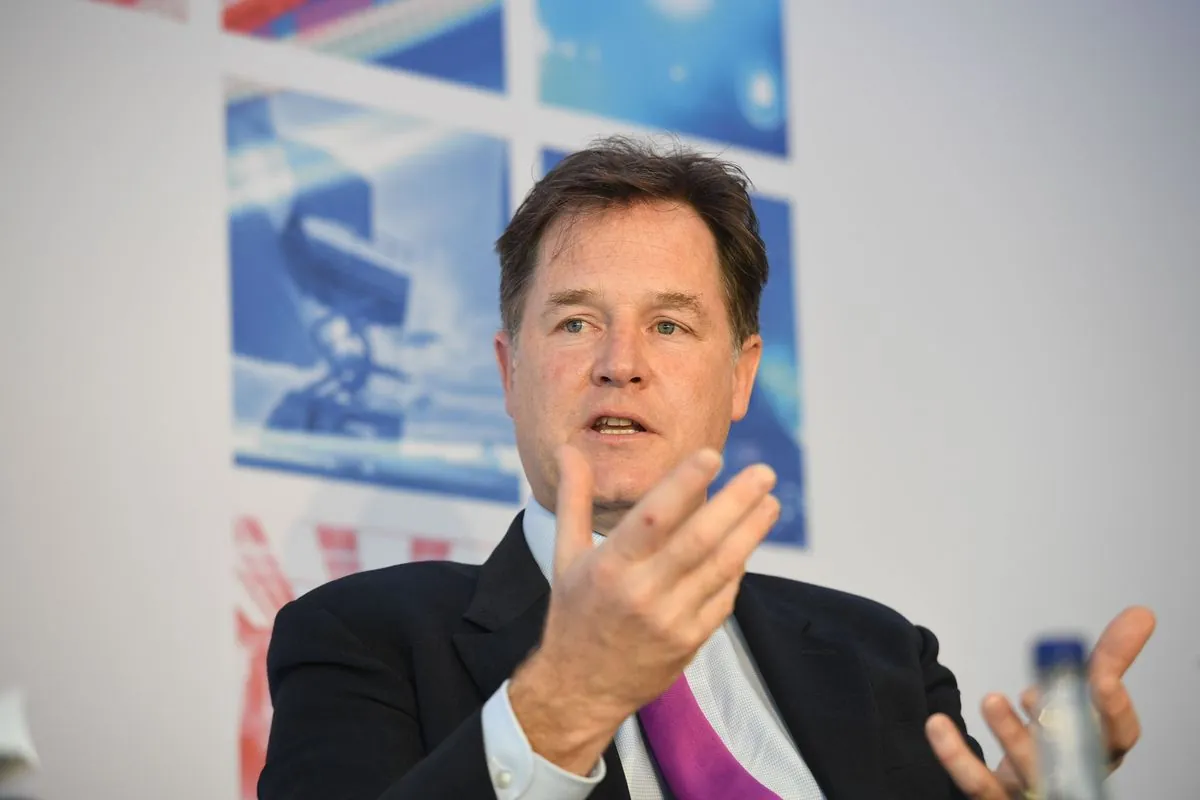In a surprising turn of events, Sir Nick Clegg, former Deputy Prime Minister and ardent Remainer, has conceded that post-Brexit Britain is outpacing the European Union in technological advancement, particularly in the field of artificial intelligence (AI).
Clegg, now a high-ranking executive at Meta, expressed concerns about the EU's approach to AI regulation. He stated, "The EU risks falling behind due to incoherent and complex regulation." This admission comes as Meta, the parent company of Facebook and Instagram, announced its decision to initiate AI model training in the UK and Brazil.
The choice of the UK for AI development highlights the country's favorable regulatory environment. Clegg explained that this move would allow Meta to introduce AI products to the UK market more rapidly, with models better attuned to local culture and language nuances.
"Unfortunately, our plans to train our AI models to understand the EU's rich cultural, social and historical contributions remain paused while EU regulators remain unable to agree how the law should be applied."
This statement from Clegg, who led the Liberal Democrats from 2007 to 2015 and was a vocal opponent of Brexit, has been met with approval from Eurosceptics. Lord Frost, the UK's former chief Brexit negotiator, interpreted these remarks as a validation of the decision to leave the EU, stating, "It is at least honest of an opponent of Brexit like Nick Clegg to recognize the advantage that gives us."
The situation underscores the diverging paths of the UK and EU in AI regulation since Brexit. While the UK published its AI regulation policy paper in March 2023 and established an AI Safety Institute in November 2023, the EU has been grappling with its comprehensive Artificial Intelligence Act, proposed in April 2021 and approved by the European Parliament in June 2023.
Mark Zuckerberg, Meta's founder, and Daniel Ek, Spotify's CEO, had previously criticized the EU's regulatory approach in a joint article last month. They warned that Europe's risk-averse stance could impede its ability to capitalize on technological investments and economic growth opportunities.
As AI continues to evolve rapidly, with its roots tracing back to the 1950s, the contrast between the UK's and EU's regulatory approaches becomes increasingly significant. The UK's post-Brexit flexibility appears to be attracting major tech players, potentially positioning it as a hub for AI innovation.
This development comes nearly five years after the UK's official departure from the EU on January 31, 2020, following the Brexit referendum of June 23, 2016. It suggests that the technological landscape may be one area where the UK is seeing tangible benefits from its decision to leave the bloc.
As the AI race intensifies, with the potential to revolutionize public services and boost economic growth, the coming years will likely see further divergence between the UK and EU approaches to technology regulation and innovation.
